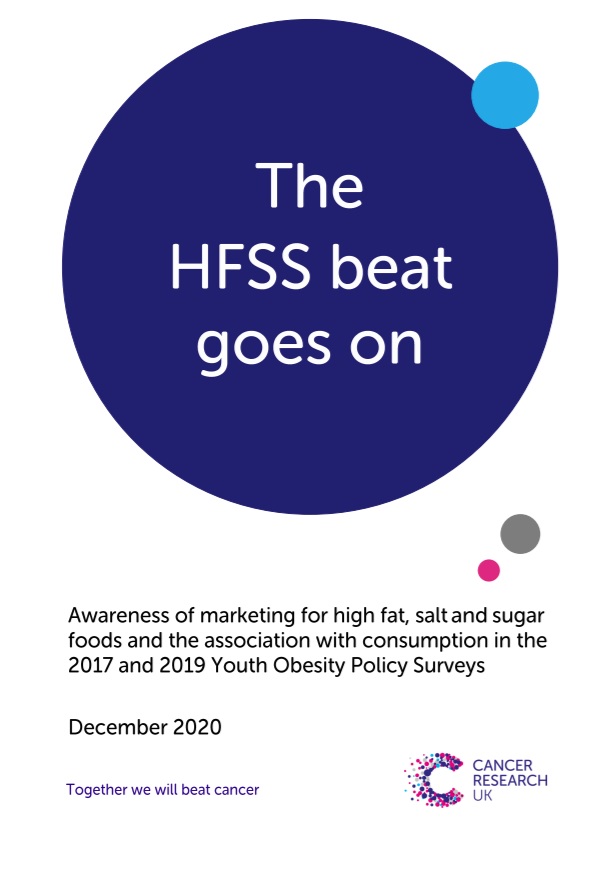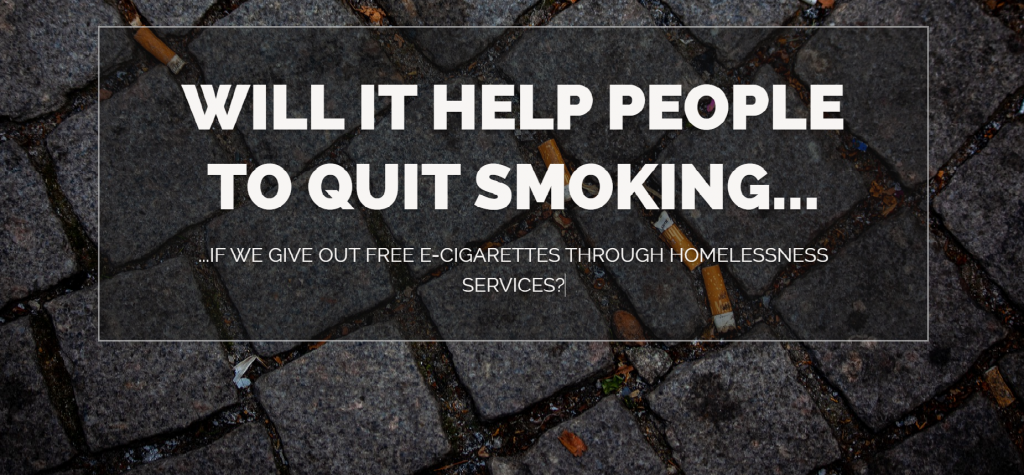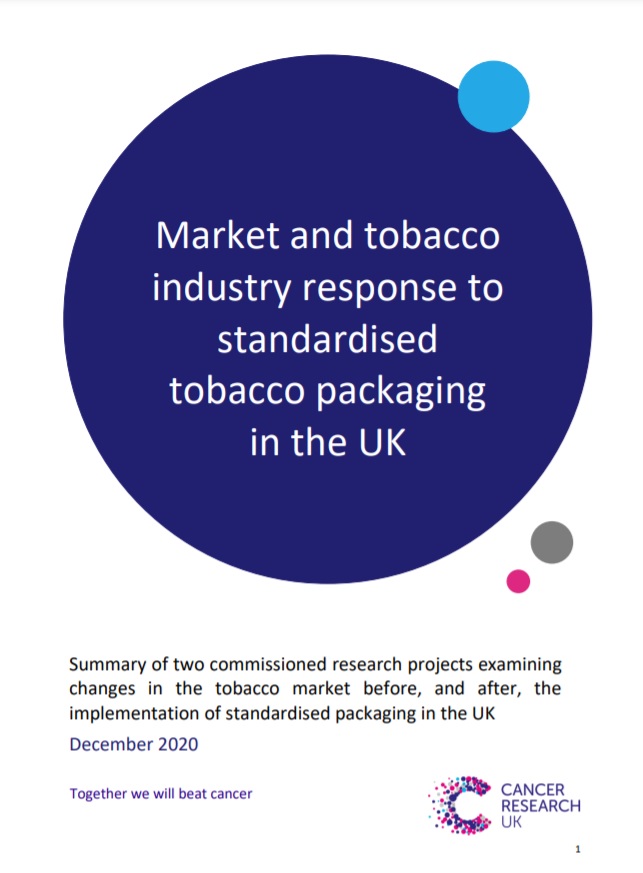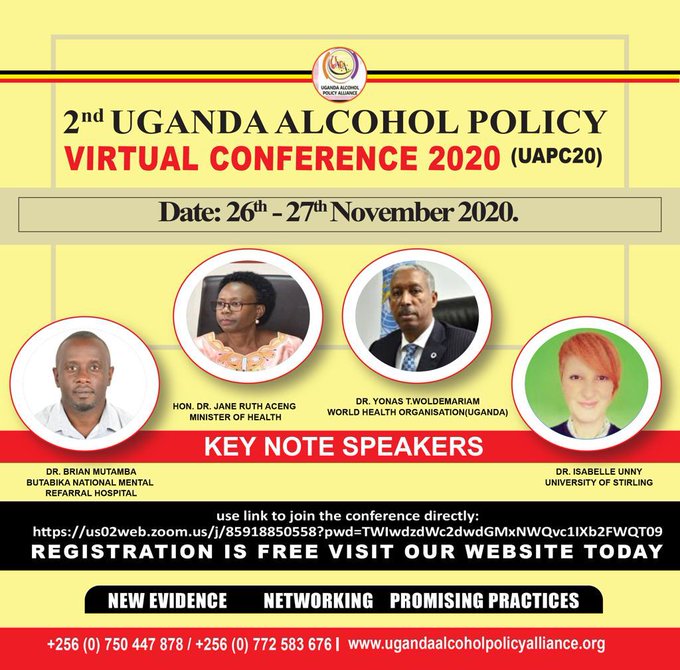New report examining adolescent awareness of unhealthy food marketing

Cancer Research UK, in collaboration with ISMH’s Nathan Critchlow, have published a new report examining awareness of marketing for unhealthy food and drinks and the association with monthly consumption of food and drinks high in fat, salt and/or sugar (HFSS).
The data come from the first two waves of the Youth Obesity Policy Survey (YOPS). This study is modelled on ISMH’s long-running Youth Tobacco Policy Survey (YTPS), a repeat-cross-sectional study that has made significant contributions to the implementation and evaluation of leading tobacco control policy in the UK.
The first wave of the YOPS was conducted in 2017 and the second wave in 2019. In each wave, data came from around 3,300 11-19 year olds from across the UK, who are recruited by YouGov. Adolescents are asked a variety of questions relating to diet and obesity, including where and how often they recall seeing marketing for unhealthy foods and their HFSS consumption.
The data suggest that little has changed in the past two years. In both waves, around nine-in-ten adolescents recalled seeing at least one instance of HFSS marketing in the past month, at least half of adolescents were estimated to see 2-3 instances of HFSS marketing a day, and higher awareness of HFSS marketing was associated with increased consumption for a variety of HFSS food and drinks.
The UK Government have committed to, or are consulting on, a range of new marketing control policies for HFSS foods. These include a 9pm watershed and a ban on online advertising. This report builds on existing evidence highlighting exposure to HFSS marketing among young people, and support the swift implementation of these proposed policies.
The full report can be read here and the executive summary here.
The report should be cited as:
Newman, A., Newberry Le Vay, J., Critchlow, N., Froguel, A., & Clark, M., & Vohra, J. (2020). The HFSS beat goes on: Awareness of marketing for high fat, salt, and sugar foods and the association with consumption in the 2017 and 2019 Youth Obesity Policy Surveys. London, UK: Cancer Research UK.
Supporting smokers experiencing homelessness to stop smoking
ISMH, with colleagues at London South Bank University, have conducted the first study in the UK to engage smokers accessing homeless services in smoking cessation support, and the first study worldwide to explore the feasibility of supplying free e-cigarette starter kits at homeless centres. Smoking prevalence amongst adults experiencing homelessness is four times higher than the UK national average. Evidence shows that although many homeless smokers would like to quit, they are less likely to engage with traditional stop smoking services, make fewer quit attempts and are less likely to stop smoking. The study team worked with four homeless centres across Scotland and England. Participants in two centres received advice to quit and signposting to the local Stop Smoking Service. In another two centres they received a free e-cigarette starter kit and 4-weeks supply of e-liquid. We found that offering stop smoking interventions within homeless support centres overcame some of the barriers this vulnerable population faces when engaging with traditional cessation approaches. As the study results were promising in terms of recruitment and follow-up of participants, and effectiveness of providing an e-cigarette starter kit to homeless smokers, these findings will now inform a possible future larger trial. Dr Allison Ford at ISMH led the Scottish arm of the study, supported by Dr Isabelle Uny and Dr Catherine Best.

A lay summary of the findings from our study can now be found here: https://spark.adobe.com/page/lk6yaCQILAsJY/ and the academic publication here: https://doi.org/10.1371/journal.pone.0240968
Findings from the feasibility study will be presented by Dr Allison Ford (ISMH) and Prof Lynne Dawkins (feasibility study PI, LSBU) at the Leaving no Smoker Behind event on 19th January 2021. Find further details including how to sign up here:
https://www.eventbrite.co.uk/e/leaving-no-smoker-behind-tickets-90789857909
New report examining implementation of plain packaging in the UK

The Institute for Social Marketing and Health played a key role in creating and reviewing evidence that led to the implementation of standardised (plain) packaging in the UK. We are also now playing a leading role evaluating the impact the policy has had on young people, adult consumers, and the tobacco market.
Last week saw the publication of a new Cancer Research UK (CRUK) report based on some our early evaluation evidence. Specifically, the report summarises two projects commissioned by CRUK to examine how retailers and tobacco companies responded to standardised packaging. We conducted one of the studies, examining implementation in small retailers. The ISMH research was led by Martine Stead, and involved Nathan Critchlow, Douglas Eadie, Anne Marie MacKintosh, Kathryn Angus and Crawford Moodie. The second study, examining implementation across the UK tobacco market (including larger retailers such as supermarkets), was conducted by the Tobacco Control Research Group at the University of Bath. This project was led by Anna Gilmore, Rosemary Hiscock and colleagues.
The findings and recommendations provide a comprehensive summary of market changes before, during and after, the implementation of standardised packaging. Several findings of note from the ISMH research are:
- Tobacco companies used the full 12-month transition period to delay the removal of fully-branded tobacco products from the market. This prolonged use of this important marketing tool until compliance was mandatory.
- Tobacco companies used the full 12-month transition period to delay and then only gradually introduce products in standardised packaging. This tactic may have mitigated some of the immediate intended effects of the legislation by gradually desensitising consumers to the new unattractive designs.
- The prices for leading tobacco products increased as standardised packaging was implemented. These rises are at odds with tobacco companies’ claims that standardised packaging would lead to lower prices, therefore increasing the affordability of tobacco and, subsequently, consumption. Conversely, in fact, our data suggested that Recommended Retail Prices (RRPs) also increased, which implies it was the tobacco companies who instigated the price rises.
The full report, including Bath’s findings, is well worth a read. We hope the conclusions will contribute to the UK Government’s post-implementation review of standardised packaging (due soon) and provide useful context to other evaluation studies. The report also includes a list of the academic publications that report the findings in detail from both the Stirling and Bath projects.
ISMH is also conducting a range of other evaluation studies. You can read some of our research papers examining how adolescents, a key target audience for prevention, have reacted to the policy here and here. You can read some of our research examining impacts among adult consumers here, here, and here. You can also read some of our policy research on this legislation by clicking here, here, and here.
Mitigating alcohol harm in Sub-Saharan Africa

ISMH’s Dr Isa Uny presented to and attended the 2nd UGANDA ALCOHOL POLICY (VIRTUAL) CONFERENCE (UAPC20)“Mobilising Partnerships and Community Action for A Society Free from Alcohol Harm” on 27th November. The Conference was attended in Uganda and virtually by 120 global delegates from Governments, NGOS, and other alliances working to minimise harmful alcohol consumption. Isa introduced ISMH’s upcoming AHRC funded study “Regulating alcohol packaging and supply to protect health in Sub-Saharan Africa: evidence from policy systems in Malawi and Uganda”. This project will explore the recent ban of alcohol sachets in Malawi and Uganda (alcohol sachets are small and cheap and have led to harmful consumption amongst the poorest in both countries). Through stakeholders interviews and community focus group discussions, the project will aim to understand: the adoption and formulation of the bans; what mechanisms for implementation were proposed and put in place; how the bans were enforced in practice; and any explanations for intended and unintended consequences of the bans. The outline of the project was well received by those present at the conference and Isa made some useful contacts ahead of starting the project in 2021 (#UAPC20).
